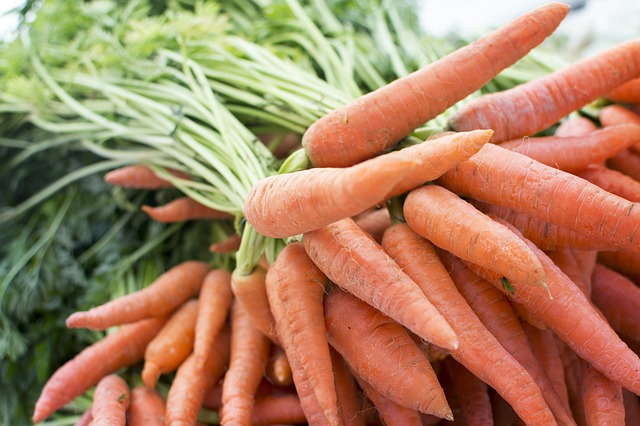Winter is right around the corner and that means losing access to local seasonal produce. If you want to keep making your favorite meals with vegetables like tomatoes, squash, and corn, you’ll need to buy imported produce. There’s nothing wrong with eating imported produce, but it’s not going to be as fresh as you’d like. Organic, imported produce is especially prone to spoiling quickly.
Don’t get stuck eating fast food out of convenience this winter. Try these tips to keep your fresh food, produce and meals tasty and fresh.
1. Keep your refrigerator at or below 40° F (4° C)
Cold food needs to stay cold and that requires keeping your refrigerator temperature at or below 40° F (4° C). A warmer refrigerator can cause microorganisms to grow on your food. For example, Salmonella, E. coli, and C. botulinum are dangerous and fast-growing microorganisms that thrive in warmer temperatures.
Using a thermometer is the only way to know the temperatures of your fridge. Refrigerator thermometers are easy to get from Amazon and come in a variety of styles. You can get a stick-on thermometer to put on an inside wall, or you can get a thermometer to hang from the side door. Other thermometers are big enough to place on a shelf toward the back.
If your refrigerator temperature rises above the correct temperature for more than a half hour, most of your food will probably be bad. If this happens, throw away foods like dairy, eggs, meat, and poultry. It doesn’t take long for bacteria to grow and multiply on these types of foods.
2. Learn the secrets to using a crisper drawer properly
When you walk into the house with groceries, it’s easy to shove all your veggies into the bottom drawers, but those drawers have a purpose and you can extend the life of your produce when you understand how to use them.
Crisper drawers are more than storage space. These drawers are sealed off areas that have a different level of humidity than the rest of the refrigerator. Some crisper drawers have vents you can open or close to increase or decrease the humidity level.
Different types of produce need different levels of humidity. For example, produce that emits gas as it ripens should be kept in a low humidity crisper drawer. Low humidity is created by opening the vent more, and an open vent allows those gasses to escape, which keeps the produce fresher for longer. These are items like peaches, apples, avocados, and grapes.
Produce that doesn’t release gas as it ripens, but is prone to losing moisture should be kept in a high humidity crisper drawer. These items include cucumbers, broccoli, carrots, strawberries, and leafy greens like kale, lettuce, and spinach.
3. Don’t keep leftovers for too long
If you’re a leftover lover, make sure you eat everything within the first couple of days. Cooked food breaks down quickly in the refrigerator. If your leftovers contain organic produce, you may want to freeze your leftovers if you don’t plan on eating them immediately.
Take special care of your holiday leftovers. Store them properly in the fridge, and make sure they get eaten. If you’ve got too much food, either freeze some of it or bring it to your neighbors. Your dog will probably love a little Thanksgiving turkey, too.
4. Don’t store mushrooms in plastic bags
Mushrooms are a high-water content food and need to be stored in the refrigerator in a moist environment. Mushrooms also need to breathe. Don’t store mushrooms in an air-tight container or in a plastic bag or you’ll end up with condensation and slimy mushrooms.
It’s best to use reusable nylon mesh bags or paper bags while you’re gathering mushrooms at the store, but if plastic is all you have access to, make sure you transfer the mushrooms to a breathable bag before storing them in the fridge.
If you prepare food with mushrooms, make sure you store the whole dish in a breathable container or your entire dish will get slimy and smelly when the mushrooms start to spoil.
5. Don’t reheat certain foods
If you’re reheating potatoes or chicken, it’s a good idea to avoid this from now on. Reheating potatoes encourages the growth of C. botulinum – the bacteria that leads to botulism, which can be deadly. Reheating chicken changes the protein structure and makes it difficult to digest.
Other foods to avoid reheating include spinach, oil, beetroot, rice, and eggs.
Eat healthy this winter
Winter is a time for sipping hot chocolate by the fireplace, but it’s also the perfect time to eat healthy. Follow these tips to keep your produce fresh and keep making healthy meals all year long.




